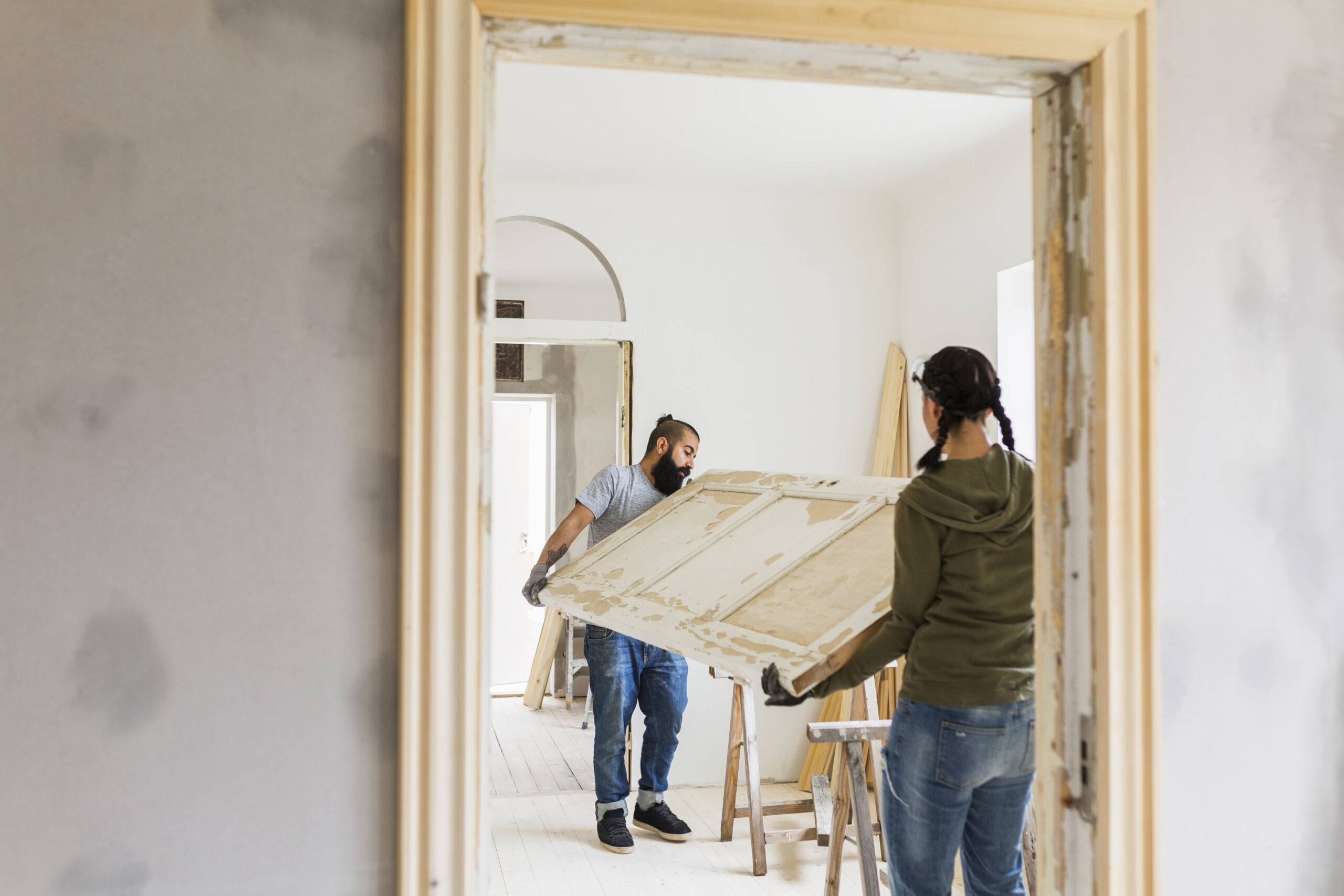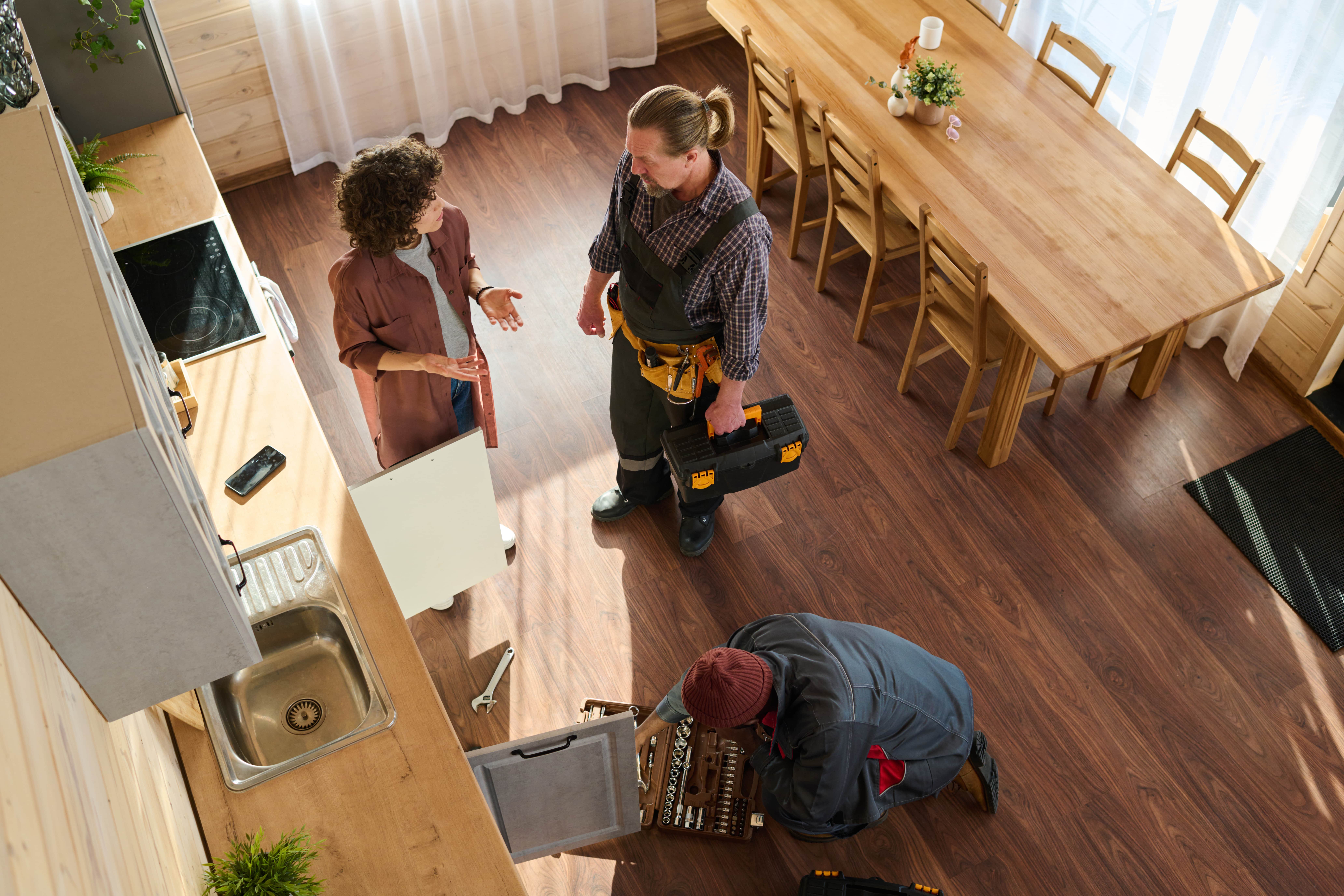Prevent Contractors From Damaging Your Home With These Tips
Hiring a contractor should make your life easier, not leave you with damage that stresses you out and costs even more to fix. Mistakes, carelessness, or lack of communication can lead to scratches on floors, broken fixtures, or worse. Many homeowners assume everything will go smoothly, but that’s not always the case. With the right approach, though, you can protect your home from unnecessary harm with tips like these.
Take Photos Before Work Begins
Before any work starts, take clear photos of your home. Floors, walls, fixtures, furniture, any and all things you think your hired contractor could come in contact with. This isn’t just for peace of mind, it provides concrete proof if damage happens. If a contractor accidentally scratches your hardwood floors or cracks a tile, having photos makes it easier to show what changed. Contractors are more likely to be careful when they know you’ve documented everything, too. It also helps with insurance claims if needed.
Set Up a Clear Work Area
Clearly define where work should and shouldn’t happen. Some contractors spread out their tools and materials outside of the direct area they’re working on, which can cause unnecessary wear and tear. If you don’t want heavy equipment sitting on your hardwood floors, tell them. If certain rooms are off-limits, tape off those areas. Be abundantly clear where they’re not allowed to go. This prevents unnecessary foot traffic and thus reduces the risk of accidental damage.
Protect Your Floors and Furniture
Even the most careful and professional contractors can track in dirt, drop tools, or spill materials. Lay down protective coverings on floors, especially in high-traffic areas. Use thick drop cloths, not just plastic sheets, which can move around or tear. Move furniture out of the way if possible. If it must stay, cover it with thick blankets or plastic wrap. Contractors may bring their own coverings, but it’s never a bad thing to be prepared yourself, too. Protecting your home from the start is easier than fixing damage later after all.
Communicate Expectations Clearly
Don’t assume contractors know your concerns. If you want them to remove shoes before walking on your carpet, say so. If you expect them to clean up daily, bring it up to them and see what they say. Many issues arise from miscommunication alone. Have a conversation before the work begins and follow up throughout the project. It’s easier to prevent a problem than to fix one after it happens, and being upfront about your expectations helps avoid frustration on both sides.
Keep an Eye on the Project
You don’t have to hover, but checking in regularly can prevent small mistakes from turning into big problems since contractors are less likely to cut corners when they know you’re paying attention. Walk through the work area daily, and if something looks off, ask about it immediately. The sooner issues are caught, the easier they are to fix. Staying involved shows that you care about your home and expect quality work.
Confirm Who’s Actually Doing the Work
The person you hire isn’t always the one doing the job. Many contractors use subcontractors, who may not have the same level of care that you’re expecting. Ask who will be working in your home and whether they’re insured since, if a subcontractor causes damage, it can be harder to resolve. Make sure the people handling the project are qualified and responsible. This step prevents surprises and helps maintain accountability with the company you’re hiring.
Get Everything in Writing
Often, a verbal agreement isn’t enough. Make sure your contract includes details about protecting your home, regular cleanup, and responsibility for any damage. If a contractor hesitates to include these details, consider it a red flag. A written agreement protects you if something goes wrong. It also sets clear expectations, so there’s no confusion later. Having everything documented ensures that, should something go wrong, you know your rights and are well protected.
Related Articles
- How to Hire the Right Contractor for Your Home Project
- 4 DIY-Friendly Home Upgrades With the Most Impact
- 6 Tasks Most Homeowners Often Overlook But Shouldn’t
Contractors can do amazing things to your home, helping bring your visions to life or make a problem spot leagues better than it started, but they can also cause damage if you’re not careful. Taking the right precautions ahead of time saves you time, stress, and money in the long run. A little preparation goes a long way in making sure your home stays in great condition throughout the project and looking its best at the end.
















